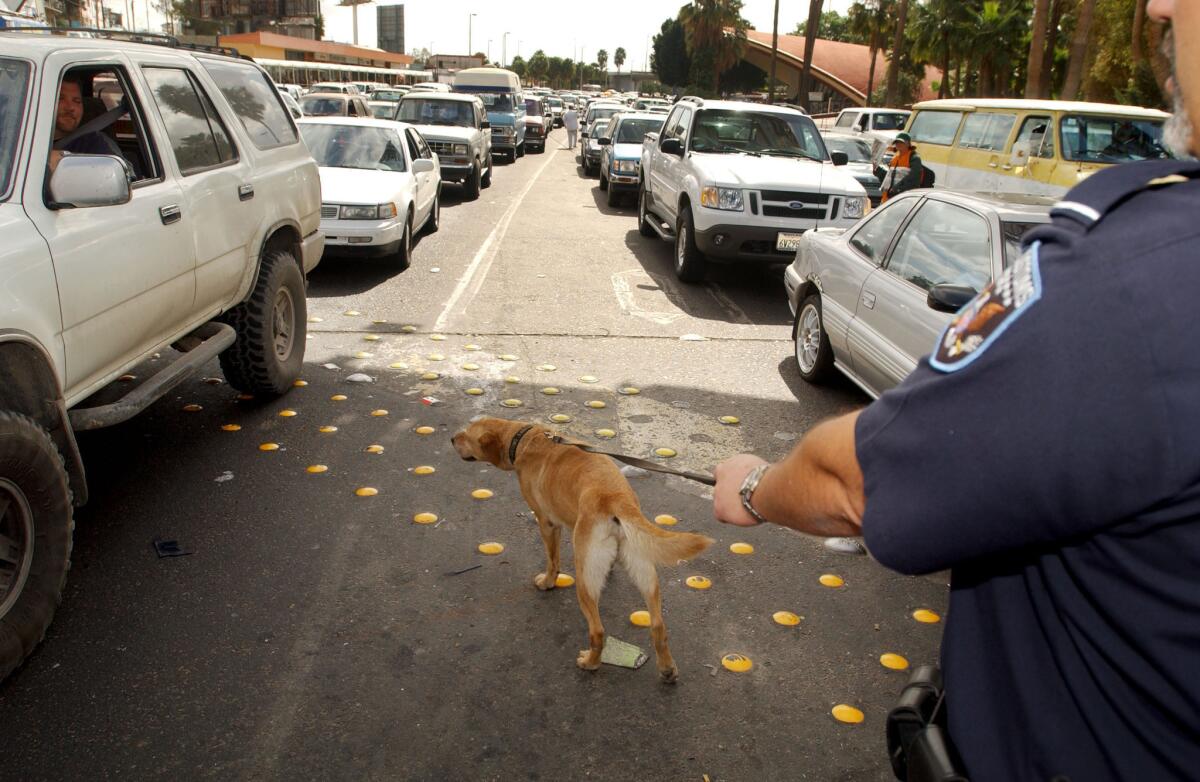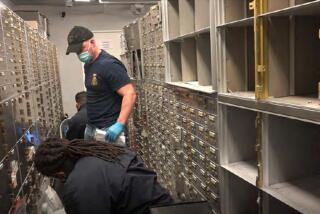A Labrador retriever and a pot bust

The Supreme Court has said that at the âvery core of the 4th Amendment stands the right of a man to retreat into his own home and there be free from unreasonable governmental intrusion.â The courtâs commitment to the sanctity of the home will be tested Wednesday by a case featuring as familiar a symbol of domestic life as the family home itself â a dog. Only in this case, the dog was not the householderâs best friend but the police officerâs.
The justices will decide whether police committed an unreasonable search when, acting on an anonymous tip, they deployed a drug-sniffing Labrador retriever named Franky at the Miami-area home of Joelis Jardines. The dog sniffed around outside the front door and gave the police the signal they were looking for, on the basis of which they obtained a warrant, and a search discovered marijuana. Jardines was charged with trafficking in more than 25 pounds of marijuana and stealing the electricity needed to grow it.
However, the Florida Supreme Court ruled that even though neither the police nor the dog entered the house without a warrant, the search was illegal. While this case is not identical to (or, as lawyers say, âon all fours withâ) its previous decisions safeguarding the privacy of the home, the U.S. Supreme Court should follow suit.
Clearly the police would have violated Jardinesâ 4th Amendment rights if they had entered his home before obtaining the warrant, with or without Franky. But since 1967, the court has recognized that an unconstitutional search need not involve physical trespass. In a 2001 decision that is likely to loom large in Wednesdayâs oral arguments, the court ruled that federal agents violated the 4th Amendment when they trained a thermal imaging device at a home to determine if the building was generating the sort of heat associated with marijuana production.
Lawyers for the state of Florida can point to differences between that case and this one. Writing for the court in 2001, Justice Antonin Scalia observed that the heat-sensing machine was an example of âadvancing technologyâ of a kind that potentially âcould discern all human activity in the home.â By contrast, drug-sniffing dogs are low tech and trained to detect only illegal activity. (How well they are trained is the issue in a separate case from Florida also to be argued Wednesday.)
But it shouldnât matter whether the privacy of the home is breached by a machine or a canine, and the fact that illegal activity may be going on inside the home doesnât negate the need for probable cause.
Finally, Florida argues that no search occurred because âeven when Franky tracked odors to their strongest point at the base of Jardinesâ front door, he was breathing only the air outside the house.â The court rejected a similar distinction in the thermal imaging case, in which the government unsuccessfully argued that the device detected âonly heat radiating from the external surface of the house.â
Scalia ridiculed this distinction between âoff the wallâ and âthrough the wallâ surveillance. What mattered was that the device in that case, like the dog in this one, was detecting what was going on inside the house. Without a warrant or probable cause, that amounts to an unreasonable search, and the court should say so.
More to Read
Sign up for Essential California
The most important California stories and recommendations in your inbox every morning.
You may occasionally receive promotional content from the Los Angeles Times.










